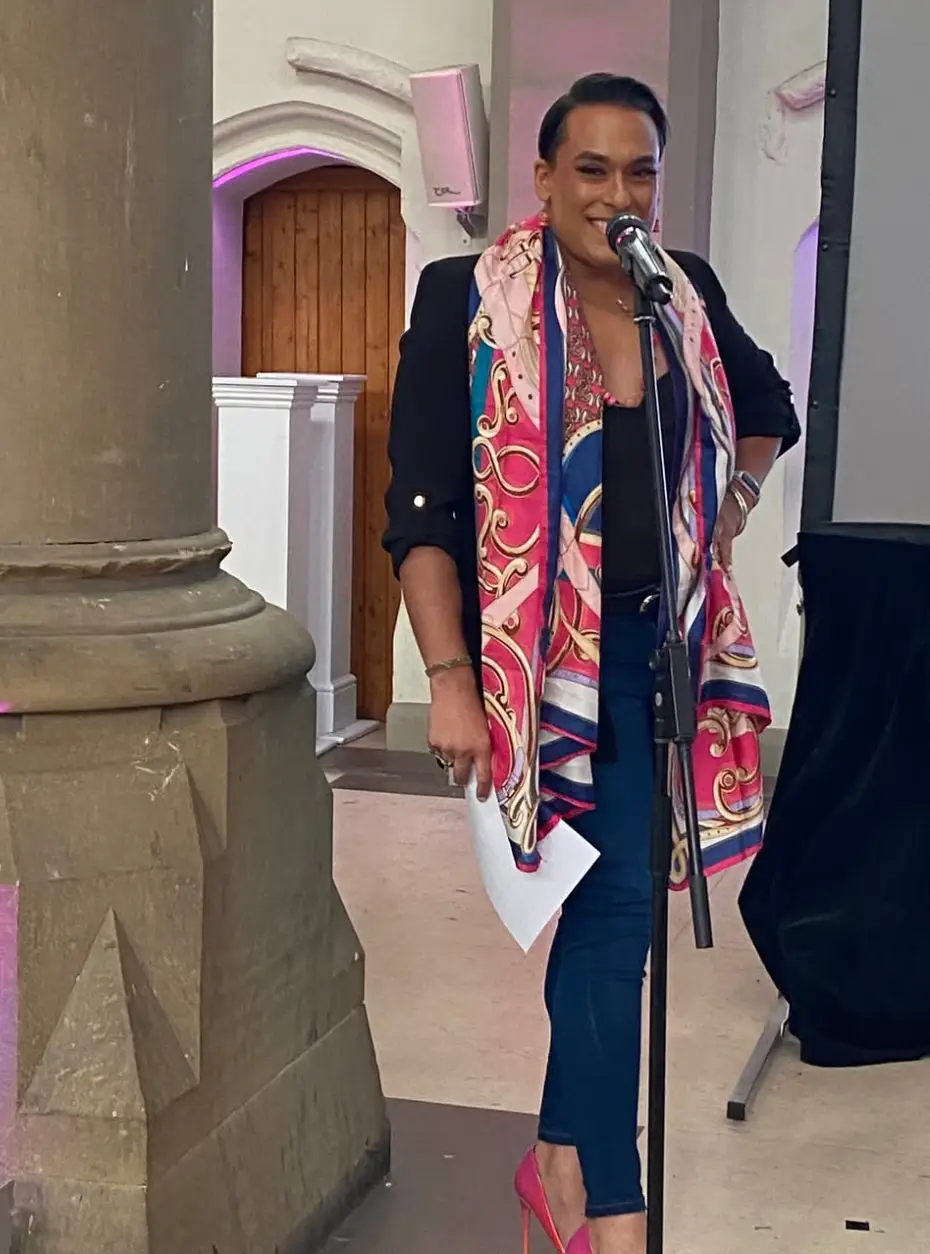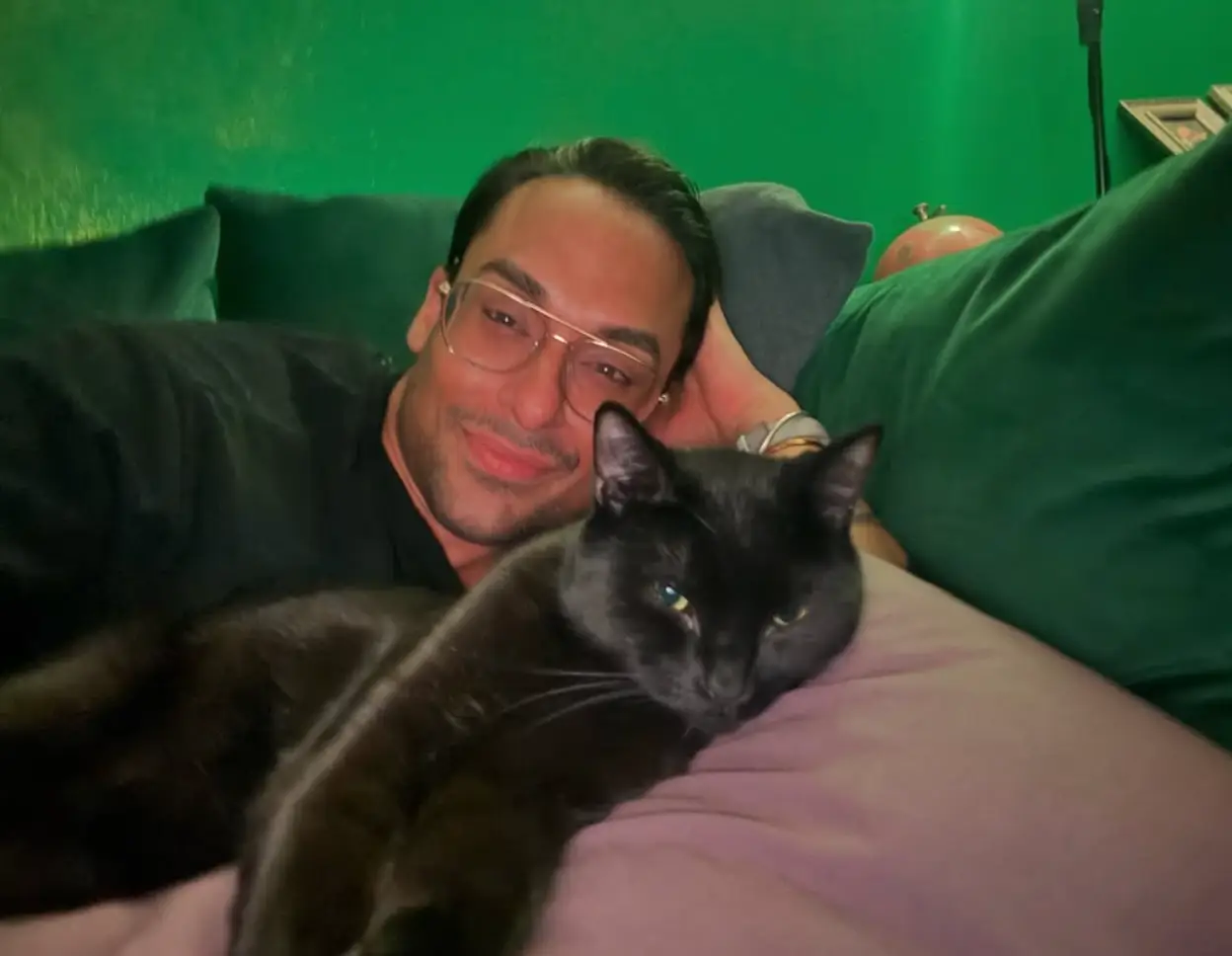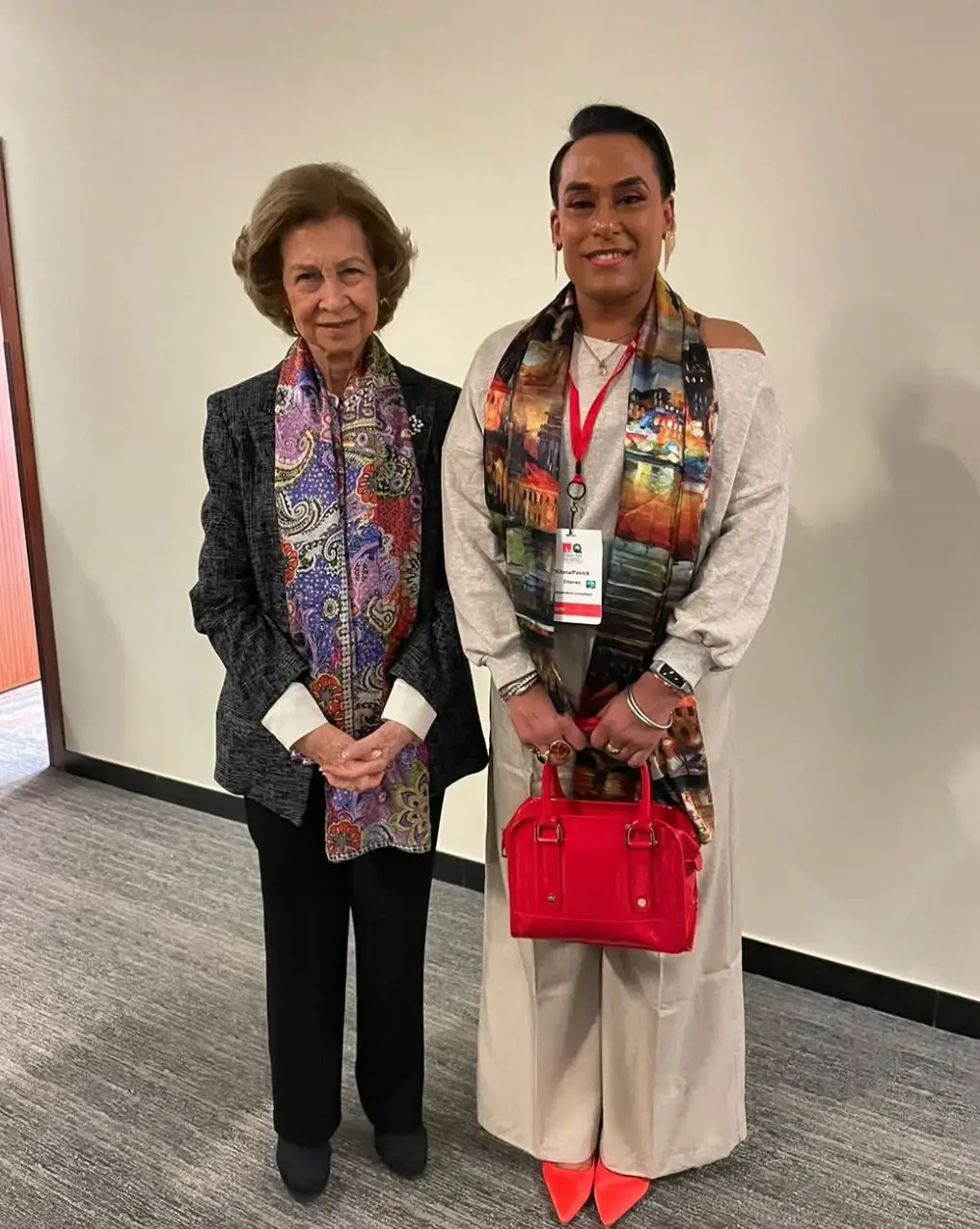
Warning: This article contains discussion of dementia and assisted dying which some readers may find distressing.
A 41-year-old living with early onset dementia has opened up about how his life has changed after being diagnosed with the 'terrifying' condition.
Using he/she pronouns, Patrick Kitana Ettenes is an award-winning activist, public speaker and writer who created the LGBT Dementia Network.
Describing living with dementia as ‘exhausting’, he opened up to LADbible about his life since receiving the diagnosis roughly a decade ago.
Advert
This was found by doctors after an abusive relationship resulted in a nervous breakdown.
“I had to learn how to walk, talk and write again, and as a result, they did a brain scan to find out that I had frontal lobe atrophy.”
Kitana was the youngest living person in the UK to be diagnosed with this type of early onset dementia at the time.

He adds that his diagnosis is a result of a ‘collaboration of a lot of things’, including hereditary, trauma, being HIV positive and previous substance abuse issues.
Now, Patrick finds just simply functioning to be a lot of ‘work’ and has ‘lost a lot of childhood memories.'
Also a consequence of years of trauma, he explains: “I have a disassociation with memory and emotions. I can remember what’s taken place, but I can’t remember how it made me feel.”
Plus, there’s the dissociation with time that has often led to difficulties, including a particularly distressing moment in a train station a few years ago.
The lecturer was travelling back to Manchester from Euston for work and as soon as he arrived at the London station ‘had no idea where I was.'

“I stood there with my suitcase, and I just wanted to scream, because it was just terrifying,” he explains. “I had no memory of my name. I knew that I was going to Manchester, I was at the train station, but I didn't know how I got there.
“I did not know what I did before. I didn't know who I was, just nothing. And I just went, ‘Oh my God’. I stood there for five minutes waiting, waiting, and slowly it came back to me, but I just wanted to scream and cry.”
On the day of our interview, the campaigner explains he'd even woken up that morning on holiday not knowing where he was.
"It's happened a lot more," he adds, "recently I woke up in my flat and for three hours, I had no idea who I was. And that's terrifying."
Kitana says while he is often ‘hypersensitive’ to his environments and can’t handle large crowds or long distances, he has a number of coping mechanisms he finds ‘calms me down’, including reading and writing.

“I plan my journeys very well for myself. I choose times when it’s extremely quiet. My headphones are my saviour when it comes to certain things,” he explains.
“I talk to friends on the phone. Or sometimes I just have someone with me.”
One major help is Patrick’s cat who provides him with vital companionship.
“Companionship really is the key to a healthy lifestyle with dementia,” he says. “Companionship in any form really is help for anyone who have to live with the condition by themselves – it is very painful and I do not wish it upon anybody.”
Another very important person in Kitana’s life is his mother, as he gave a quick, blunt but heartbreaking answer to our question regarding his future plans for life.
“Euthanasia,” he told us, revealing that his mum has offered to pay for it when ‘the time is right.'

A controversial practice, he understands people may be ‘very upset’ with this but rightly says: “At the end of the day, you do not sit in my skin. You do not live my life. It isn’t your life.”
Patrick’s dad also suffered from dementia before dying from a heart attack, and he says he doesn’t want his mum to have to go through taking care for him too.
“Why should I have to sit there and suffer to the end?” he says. “I function through my work. People see me out there and I look wonderful, but when I come home, half the time, I'm falling apart. I'm crying. I'm by myself. It's really hard.
“But I will do my work, I want to make sure I get everything out there I can do, I want to see certain things take place, travel to certain places. And then, when the time's right, just go.”

Kitana’s work does continue to provide vital change and support for those with dementia, particularly LGBT+ people. He co-founded the innovation campaign Bring Dementia Out to encourage LGBT+ inclusion and awareness in resources. And it should not be underestimated how much of an important impact he’s had.
“I use my pain in order to help other people, because I don’t want other people to have to go through what I went through,” he says. “I’m the forefather on this f**king planet who did that, and I can honestly say I am the forefather of a lot of LGBT+ stuff that you see in England and around Europe, as the first person in Europe to discuss LGBT issues around dementia.”
Continuing his commitment to support, Kitana issues an important bit of advice for those with friends or family who may have been diagnosed with early onset dementia: “Be with them, treat them as normal and then you see them function as normal. But the minute you isolate an individual because you think there’s something wrong with them, that part that you think is wrong with them will come out.
“So my advice is just to spend time with them and know in your heart that this is part of life.”
If you’re worried about yourself, or someone close to you, then check your symptoms today using Alzheimer’s Society’s symptom checklist. Visit alzheimers.org.uk/checklist or call their Dementia Support Line on 0333 150 3456.
You can find out more about the LGBTQ+ support programme Patrick Kitana co-founded, Bring Dementia Out, here.
Topics: Health, LGBTQ, Mental Health, Community, Originals